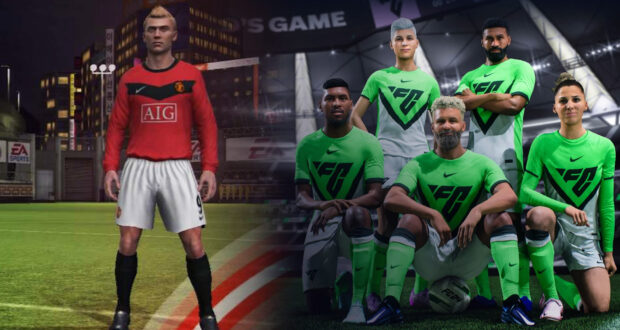For years, Pro Clubs has quietly been one of EA SPORTS FIFA’s most loyal modes. While Ultimate Team grabbed headlines, players who enjoy building their own footballer and playing with friends stuck with Pro Clubs through every version of the game. Now called “Clubs” in EA SPORTS FC, the mode has seen some important changes over time, but also long stretches of silence.
Let’s take a look at how Pro Clubs evolved from its early beginnings to what it looks like today in FC 25.
Where It All Started: FIFA 09 to FIFA 12
Pro Clubs first appeared in FIFA 09 as Be a Pro mode. The core idea was simple and ambitious: allow users to create their own player and join a team with friends online, each person controlling their own footballer in 10v10 matches.
Back then, the mode was pretty barebones. You could play ranked matches, but there were no deep stats, customization options were limited, and there wasn’t much structure. Still, it was a unique experience and for many players, far more rewarding than facing AI in Career Mode or chasing coins in Ultimate Team.
Slow Growth and Stagnation: FIFA 13 to FIFA 20
For a long stretch of time, Pro Clubs didn’t change much. Players could create a Virtual Pro and earn stats through accomplishments. Clubs had simple systems for promotions and relegations through 10 divisions, but there weren’t many new features added each year.
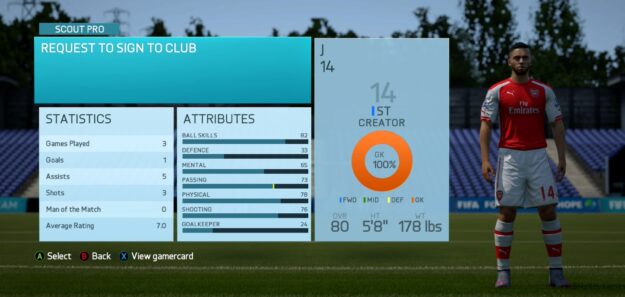
Customization improved a bit with kits, crests, and stadium options slowly expanded, but gameplay and club management stayed mostly the same. Many fans started feeling like the mode was being ignored. Ultimate Team received constant updates, new content, and regular events. Pro Clubs, on the other hand, often went several years with no real improvements.
In the same period, football content started popping up in all kinds of places, from mobile games to online casino platforms. Sites like https://ausscasinosanalyzer.com/ started listing football-themed games, showing how the sport was reaching different types of players outside the usual FIFA crowd.
The Push for More: FIFA 21 to FC 24
By the time FIFA 21 and FIFA 22 came out, the frustration around Pro Clubs had grown. EA made some small updates like:
- Better AI teammate customization
- Minor improvements to match presentation
- New perks and traits for Virtual Pros
But what players really wanted was crossplay and a deeper experience.
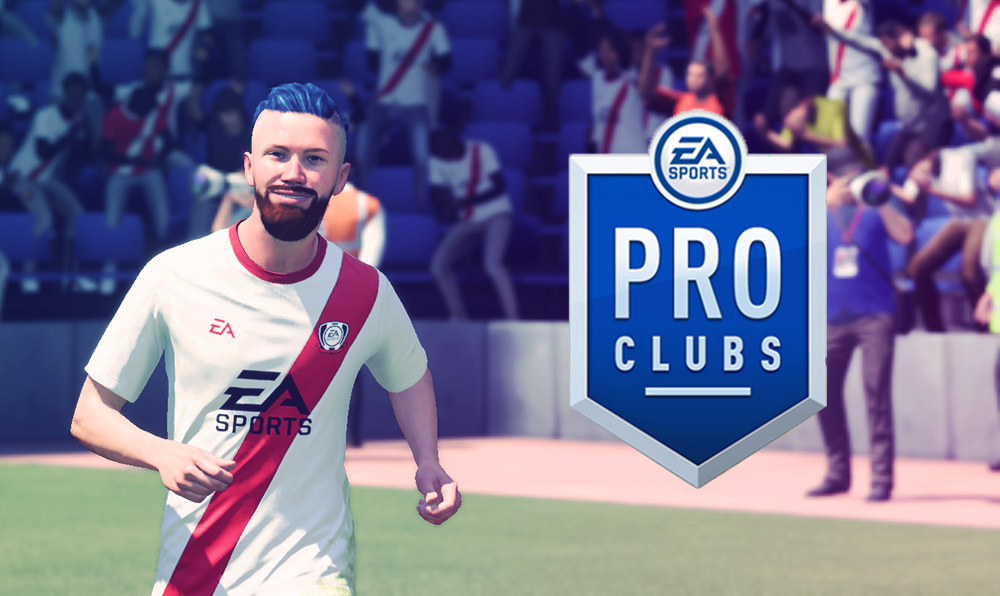
That finally arrived in FC 24, when EA rebranded the franchise to EA SPORTS FC. Pro Clubs became simply “Clubs,” and some long-requested features finally arrived:
- Crossplay between same-gen consoles
- PlayStyles added for more unique player builds
- Seasonal League progression based on fans earned
- Playoff matches and weekly match windows
This was a turning point. It wasn’t a complete overhaul, but it was the first time in years that EA showed signs of taking the mode seriously again.

A Bigger Step Forward: FC 25
In EA SPORTS FC 25, Clubs got its most significant set of changes in years. The goal seemed to be making the mode feel more like a long-term project, not just a side mode.
Here are some of the biggest updates in FC 25:
Clubhouse
Each club now has a Clubhouse which is a central hub where players can see the club’s visuals, identity, and stats. It includes your team’s crest, stadium, trophies, and other details. It’s a small change but adds personality and identity to each team.
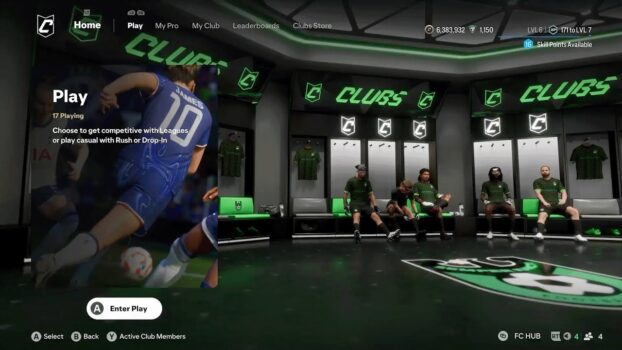
Facilities
Clubs can now build Facilities that give gameplay boosts. For example, a Gym might improve physical stats, or hiring a Nutritionist might give fitness bonuses. These are unlocked with fans and wins, adding a new layer of progression.
FC IQ and Tactics
The AI is a bit smarter now, thanks to a feature called FC IQ. You can assign specific roles and instructions, and the team understands multiple tactics (like pressing styles or formation shifts). This makes the AI more useful, especially in games with fewer human players.
Goalkeeper PlayStyles
Goalkeepers can now use PlayStyles, just like outfield players. This means GKs can be built as shot-stoppers, distributors, or sweeper-keepers depending on how you play.
Rush Mode
Volta has been replaced with a new Rush mode featuring 5v5 matches with no goalkeepers. This is integrated into Clubs and works for quicker games or drop-ins.
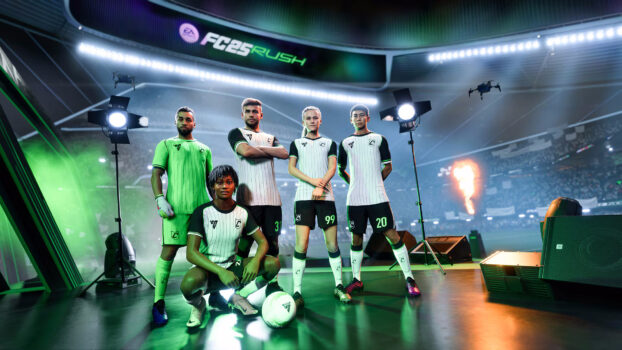
Relegation Battles
Relegation has returned, but with a twist. You have a certain number of “chances” to survive in each division. If you run out, you face a Relegation Battle! Lose that, and you drop down.
Key Differences Over Time
To see how far things have come, here’s a quick look at how some of the key features have changed:
| Feature | FIFA 09–12 | FIFA 13–20 | FC 24 | FC 25 |
|---|---|---|---|---|
| Player Progression | Basic stat growth | Accomplishments | PlayStyles + Perks | GK PlayStyles + Facilities |
| Customization | Limited | Kits and stadiums | Club visuals + items | Clubhouse + detailed Pro look |
| AI Tactics | Very basic | Some instructions | Some improvements | FC IQ with 5 tactics |
| Crossplay | No | No | Yes (same-gen) | Improved matchmaking |
| Game Modes | Ranked matches only | Same | Seasonal ladder + playoffs | Plus 5v5 Rush mode |
Still Missing Features
Even with these changes, there are still features players ask for every year:
- Full club stat tracking (goals, assists, trophies, etc.)
- Club history and hall of fame
- Better drop-in search tools
- In-game club tournaments
- eSports-level support
Some of these were once present in older versions or discussed in forums but never fully developed.
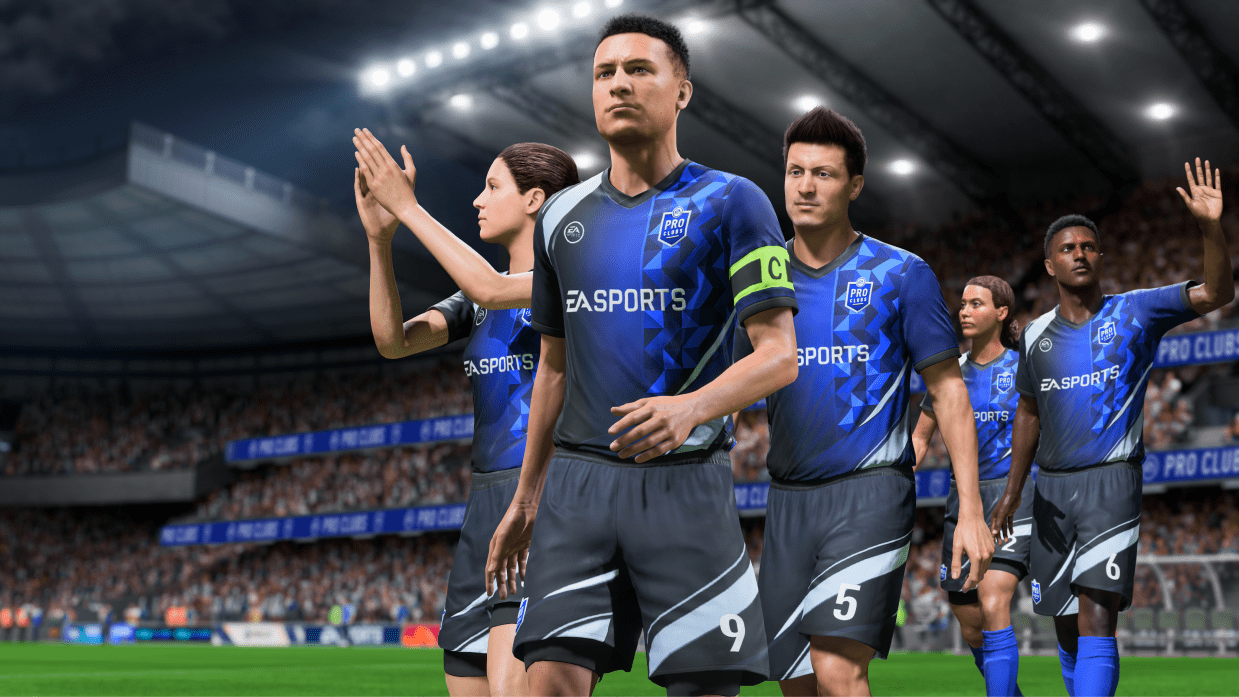
Community Sentiment and Longevity
For over a decade, it’s been the player base that’s kept Clubs alive and not EA. Even during the years when the mode barely changed, community-organized leagues, forums, and Discord groups kept things running. Some players have stuck with the mode since FIFA 10, grinding divisions with the same friends season after season.
Online campaigns and feedback threads have been calling for features like club histories, stat tracking, competitive ladders, and a career-style experience that gives Clubs more long-term purpose.
While FC 25 brought meaningful changes, especially with progression and tactics, some players still feel like it’s just scratching the surface. The lack of club stat archives, deeper rewards, and an eSports path leaves a gap for players who want more structure and recognition.
Still, it’s clear EA made a bigger effort this time around. The rework of tactics, the Clubhouse, and Facilities system feel like a shift in direction, not just another patch.
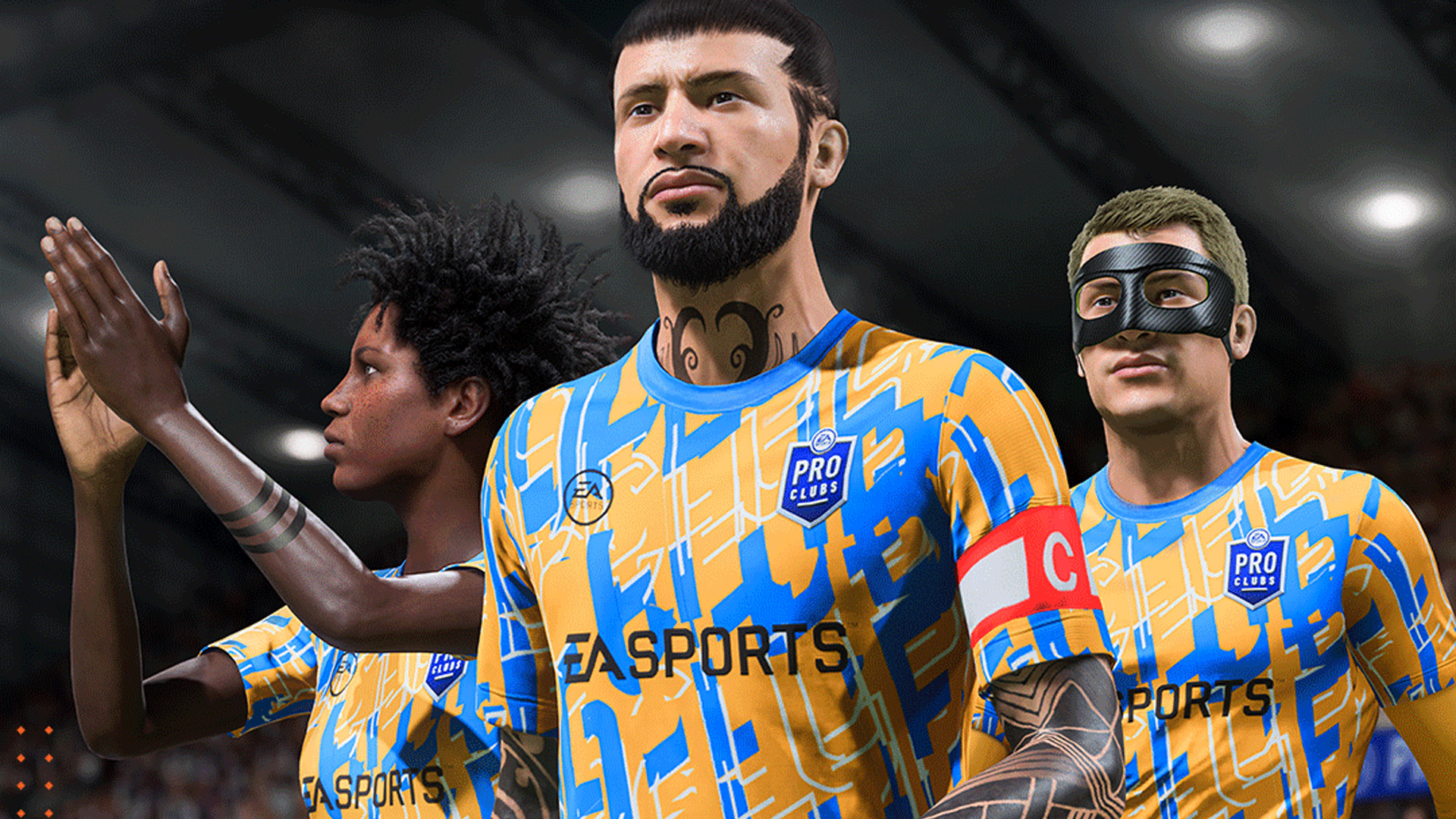
What Comes Next for Clubs?
The big question is: can Clubs ever move beyond being just a side mode?
Ultimate Team is EA’s main money-maker, and that’s unlikely to change. But if EA continues to support Clubs with yearly upgrades, community-driven features, and long-requested improvements, it could grow into something more competitive and sustainable.
Crossplay was a big step. Facilities and FC IQ show that the dev team is willing to add depth. The next challenge is giving Clubs a stronger identity, something that feels like a proper football journey, not just a seasonal loop.
There’s no need for Clubs to become FUT. It just needs to keep building on what made it great in the first place: shared moments, long-term team building, and actually playing football with your mates.
 FIFA Infinity The Absolute FIFA Site
FIFA Infinity The Absolute FIFA Site
